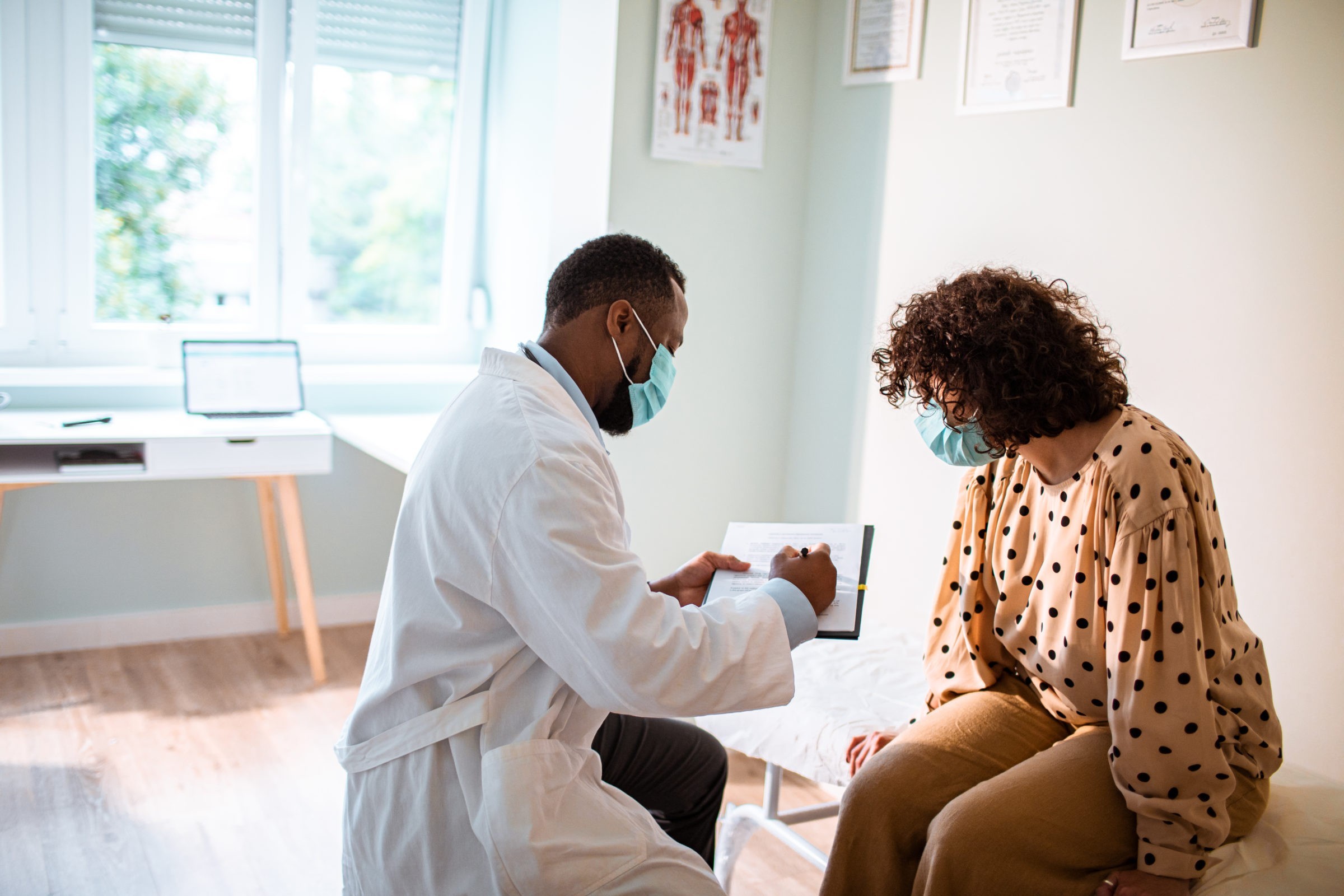 In the early stages of the pandemic, preventive care was largely put on hold. But, with new safety protocols, people were starting to feel more comfortable about going back to the doctor. Now, as the pandemic is resurging, there’s concern that people may again delay or skip critical screenings and immunizations. We talked with our Medical Director, Dr. James Beckerman, about the importance of receiving preventive care in the coming year and the role that health plans and employers play in reinforcing this message. Here’s our conversation.
In the early stages of the pandemic, preventive care was largely put on hold. But, with new safety protocols, people were starting to feel more comfortable about going back to the doctor. Now, as the pandemic is resurging, there’s concern that people may again delay or skip critical screenings and immunizations. We talked with our Medical Director, Dr. James Beckerman, about the importance of receiving preventive care in the coming year and the role that health plans and employers play in reinforcing this message. Here’s our conversation.
What does the preventive care landscape look like these days?
Like many things during this pandemic, preventive care continues to evolve. Early on, fewer people were actively seeking preventive care—like having an annual exam, getting colonoscopies or mammograms, or even going to the dentist. We also noticed that people who had serious symptoms, like heart attacks or strokes, were less likely to seek medical care, which was concerning. Fortunately, within the last few months, that has been improving. The pivot toward telehealth and new in-office safety protocols have improved access to care for our patients. But it will take years for us to know the long-term impact of people not getting their regular checkups or screenings, and I’m sure we will see some sad outcomes as a result.
What are some of the new standards or protocols that doctors and hospitals have put in place to make in-person medical care safer?
Along with personal protective equipment (PPE), we require patients to wear masks, stagger office visits and procedures to avoid interactions between patients, and require patients to take a COVID-19 test before having a medical procedure in the hospital. We recognize it’s impossible to completely eradicate risk, but we now know much more about this virus and how to reduce transmission risk enough so people are more comfortable engaging in certain activities like health screenings.
The pandemic is starting to surge, and people may again become reluctant to see a doctor. What would you say to convince them to schedule a preventive care visit or screening?
Just as it’s important for us to wash our hands, wear our masks, and physically distance, preventive care plays a key role in the bigger picture of keeping ourselves healthy. We know that healthier people are more likely to do better if they are infected with coronavirus, so staying up-to-date on preventive care visits and screenings can put us in the best position to face the virus moving forward.
What about routine immunizations/vaccinations—especially as they apply to children, but also to older adults?
It’s natural that people are so focused on not getting COVID-19 that they’re letting other key immunizations fall by the wayside. And yet immunizations are the way we protect ourselves—especially children—against other diseases that can also be harmful. So, we really urge people to stay current on vaccines that are appropriate for their age group. Again, if we do everything in our control to stay healthy, we’ll be in a much better position should we contract the coronavirus.
Can you talk a little about why it’s so important to get the flu shot this year?
At the risk of sounding like a broken record, if you get the flu and then you get coronavirus, you’re much more likely to have a bad outcome than you are if you had protected yourself with a flu vaccine from the beginning. It’s also important to realize that getting a flu vaccine isn’t something you do just for yourself. It protects other people you live or work with who may be more vulnerable to the flu and catch it from you.
We often talk about “silver linings” coming out of this pandemic. Do you see any when it comes to preventive care?
Yes, I am really excited about how telehealth visits have taken hold. It has been great for me to be able to see patients for routine issues in a setting that’s more convenient for them. While some medical concerns still require an in-person visit, I really value maintaining relationships with my patients—and I can do this with telehealth. I think this trend will continue long after we are through with the pandemic.
One more thing—with the pandemic, so many people are suffering from anxiety and depression, and the ability to see a mental health provider virtually has been tremendous. I genuinely believe that “telemental health” will stick and make it easier for everyone to care for their mental health in the future.
Lastly, what message would you send to employers and health plans to help their populations stay current with preventive care?
My main message would be that a healthy workplace is made up of healthy workers—so please continue to share the importance of staying the course with routine preventive care. Also, reinforce to your teams that by getting flu shots and immunizations against other diseases, they are helping not just themselves but also everyone around them.
As Dr. Beckerman shares, getting our recommended screenings and other preventive care is always an important part of staying healthy—but perhaps even more so now. As we approach 2021 and the new health plan year, it’s a good idea to remind your employees and members to schedule their well visits, screenings, and immunizations so they can stay on track.
Related Content:

